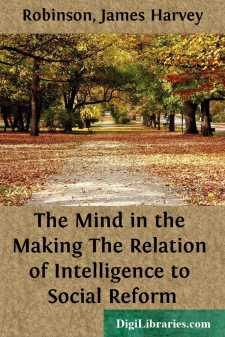Categories
- Antiques & Collectibles 13
- Architecture 36
- Art 48
- Bibles 22
- Biography & Autobiography 813
- Body, Mind & Spirit 142
- Business & Economics 28
- Children's Books 15
- Children's Fiction 12
- Computers 4
- Cooking 94
- Crafts & Hobbies 4
- Drama 346
- Education 46
- Family & Relationships 57
- Fiction 11828
- Games 19
- Gardening 17
- Health & Fitness 34
- History 1377
- House & Home 1
- Humor 147
- Juvenile Fiction 1873
- Juvenile Nonfiction 202
- Language Arts & Disciplines 88
- Law 16
- Literary Collections 686
- Literary Criticism 179
- Mathematics 13
- Medical 41
- Music 40
- Nature 179
- Non-Classifiable 1768
- Performing Arts 7
- Periodicals 1453
- Philosophy 64
- Photography 2
- Poetry 896
- Political Science 203
- Psychology 42
- Reference 154
- Religion 513
- Science 126
- Self-Help 84
- Social Science 81
- Sports & Recreation 34
- Study Aids 3
- Technology & Engineering 59
- Transportation 23
- Travel 463
- True Crime 29
James Harvey Robinson
James Harvey Robinson was an influential American historian and educator, born in 1863 and known for reshaping the study of history in the early 20th century. He emphasized the importance of interdisciplinary approaches, blending history with other social sciences, which he termed "The New History." Robinson's key works include "The New History" (1912) and "An Introduction to the History of Western Europe" (1902), both of which advocated for history's relevance to contemporary issues. He co-founded the New School for Social Research in 1919, promoting progressive ideas in education and public intellectualism.
Author's Books:
Sort by:
PREFACE In introducing the student to the history of the development of European culture, the problem of proportion has seemed to me, throughout, the fundamental one. Consequently I have endeavored not only to state matters truly and clearly but also to bring the narrative into harmony with the most recent conceptions of the relative importance of past events and institutions. It has seemed best, in an...
more...
1. ON THE PURPOSE OF THIS VOLUME If some magical transformation could be produced in men's ways of looking at themselves and their fellows, no inconsiderable part of the evils which now afflict society would vanish away or remedy themselves automatically. If the majority of influential persons held the opinions and occupied the point of view that a few rather uninfluential people now do, there...
more...



